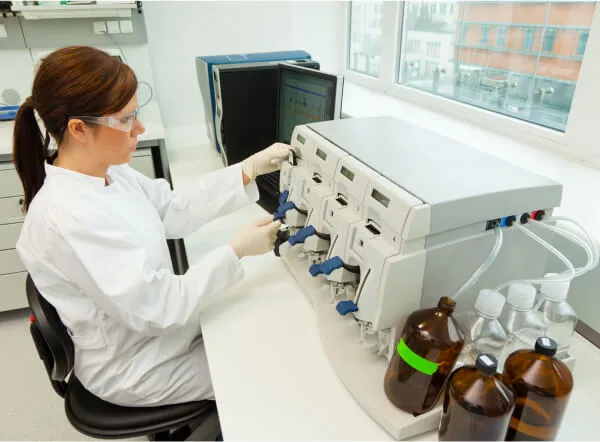Limnology and Aquatic Biology

Learn about the interrelated fields of limnology and aquatic biology and associated career options. Get information about the education needed for employment in this field.
<h2 id="section---AreLimnologyAndAquaticBiologyForMe">Are Limnology and Aquatic Biology for Me?</h2>
<h3 id="section---CareerOverview">Career Overview</h3>
<p>Limnology and aquatic biology are integrated fields. Limnology is the study of the characteristics of freshwater bodies, as well as non-oceanic saltwater bodies, such as the Great Salt Lake. Limnologists generally specialize in one area, such as the plants, animals, chemical properties or physics of a particular body of water. Aquatic biologists focus on the organisms that live in both freshwater and saltwater environments. Paramount concerns for both limnologists and aquatic biologists are the maintenance of healthy water ecosystems and the <a href="https://learn.org/directory/category/Physical_Science/Natural_Resources_Policy_and_Management/Water_and_Wetlands_Resources_Management.html">management of water resources</a>.
</p>
<p>Limnologists may work as <a href="https://learn.org/articles/Ecologist_Jobs_Answers_to_Your_Questions.html">ecologists</a>, environmental scientists, <a href="https://learn.org/articles/Wildlife_Biologist_Career_and_Salary_FAQs.html">wildlife biologists</a>, natural resource specialists, chemists, <a href="https://learn.org/articles/Hydrologist_Answers_To_Your_Career_and_Salary_Questions.html">hydrologists</a> or fisheries biologists. Many are professors or work in scientific research. As a limnologist, your focus is on the water systems aspect of your chosen career. You may work in the lab or in the field, but probably you'll do a little of both. You could work for the government or private industry as an environmental consultant or research scientist. As an aquatic biologist, you'll generally focus on the organisms living in the water, but your job titles and employers may be similar to that of the limnologist. For both the limnologist and aquatic biologist, good communication, problem-solving and analytical skills are important.
</p>
<h3 id="section---Employment">Employment</h3>
<p>The U.S. Bureau of Labor Statistics (BLS) does not report wage information specifically for limnologists and aquatic biologists (<i>www.bls.gov</i>); however, it does have information for occupations in which limnologists and aquatic biologists often work. For instance, as of May 2012, hydrologists had a reported median annual wage of $75,530, while biochemists and biophysicists made $81,480. In the same reporting year, the median annual salary of zoologists and wildlife biologists was $57,430. <i>PayScale.com</i> reported that, as of March 2014, aquatic biologists' total pay (including bonuses) in the 10th-90th percentile range was $31,962-$75,807.
</p>
<p>Per the BLS, employment of hydrologists is predicted to grow 10%, roughly equal to the average for all occupations, from 2012-2022, while biochemists and biophysicists could expect a 19% increase in employment during that same decade.
</p>
<h2 id="section---HowCanIWorkInLimnologyAndAquaticBiology">How Can I Work in Limnology and Aquatic Biology?</h2>
<h3 id="section---Education">Education</h3>
<p>To become a limnologist or aquatic biologist, you can start with a Bachelor of Science or Bachelor of Arts in Biology program. Some schools offer concentrations in <a href="https://learn.org/articles/Aquatic_Biology_Degree_Programs_Answers_to_Your_Questions.html">aquatic biology</a>, limnology and aquaculture. You can expect to take classes in conservation biology, ecosystem ecology, chemistry, physics, statistics and math.
</p>
<p>You may find that employers prefer a master's or doctoral degree. If you pursue a Master of Science in Limnology, you'll study biometrics and biology research methods. You'll explore your specific areas of interest through original research and a thesis project.
</p>
<p>A Ph.D. program with a focus on aquatic biology and limnology can prepare you for <a href="https://learn.org/articles/Research_Scientist_Jobs_Your_Career_and_Salary_Questions_Answered.html">research science</a> and teaching positions as well as giving you a competitive advantage for many of the same positions you might hold with a lower-level degree. At the doctoral level, you may refine your interests to specific topics, such as the study of crustaceans or algae. You might also integrate your studies with a discipline in the social sciences or humanities in order to explore human relationships with water ecosystems. A Ph.D. program is demanding and generally requires you to obtain teaching experience. You'll need to pass comprehensive exams. Finally, you must write and defend a dissertation based on your original research.</p>


.svg)